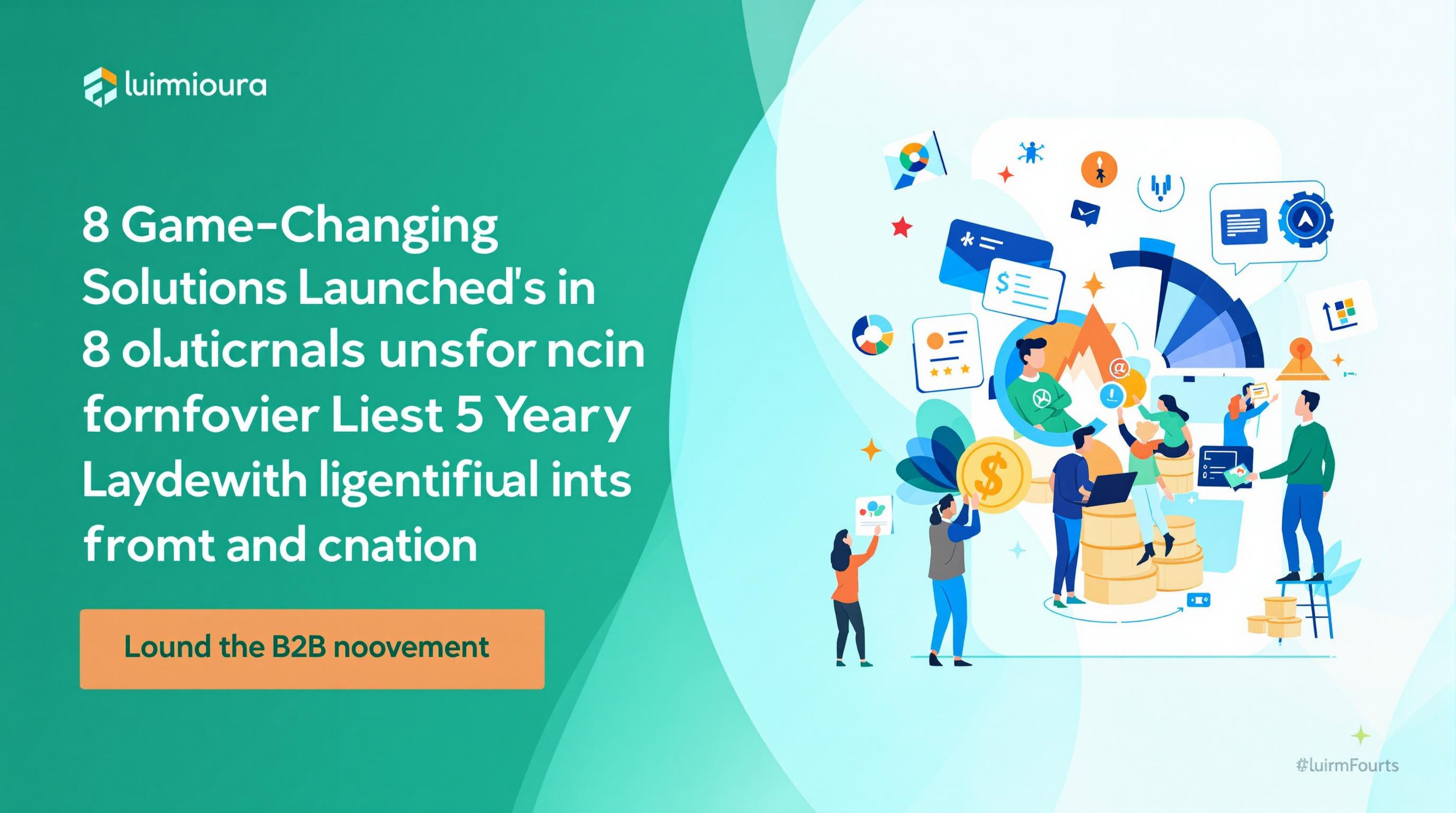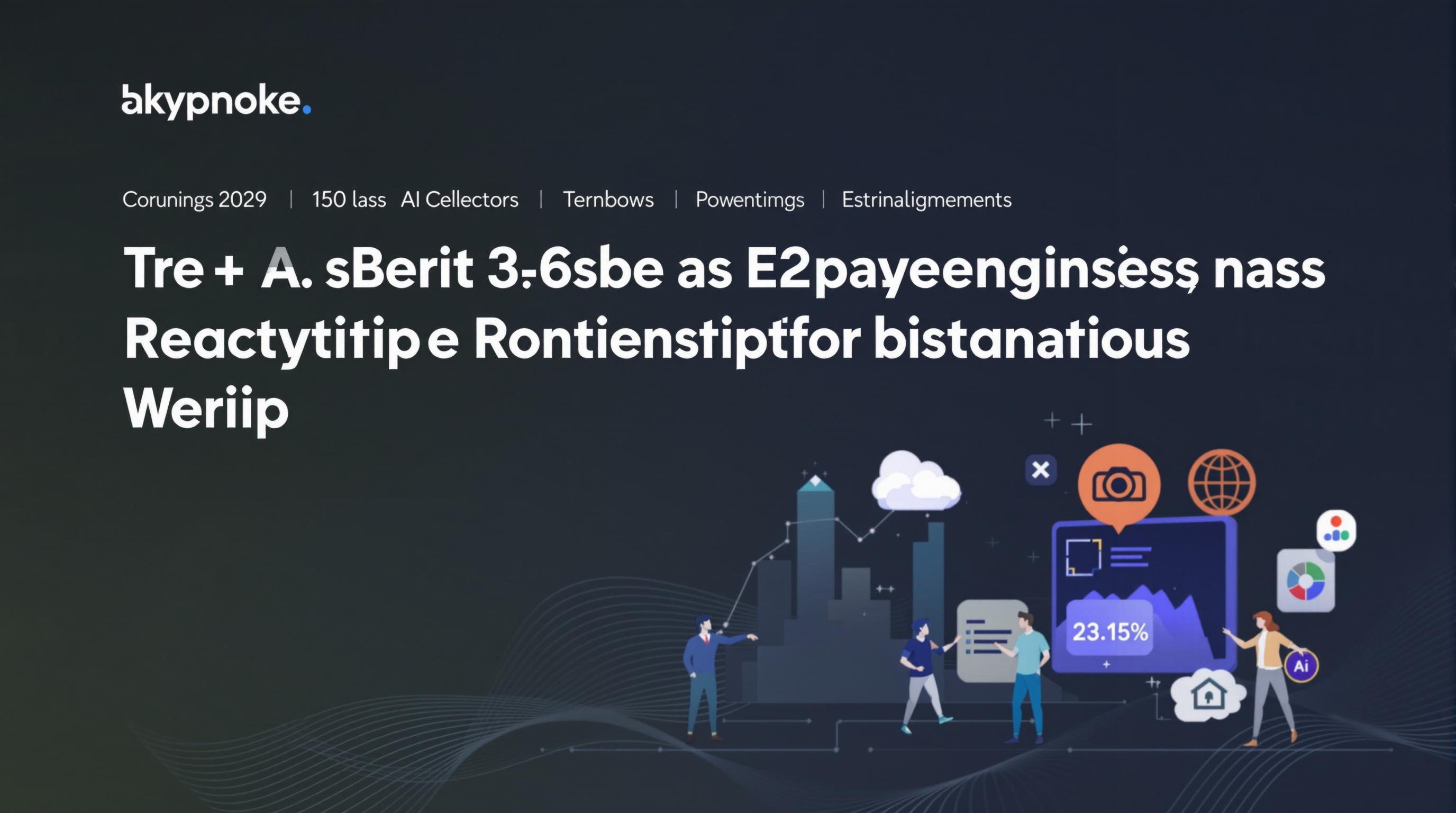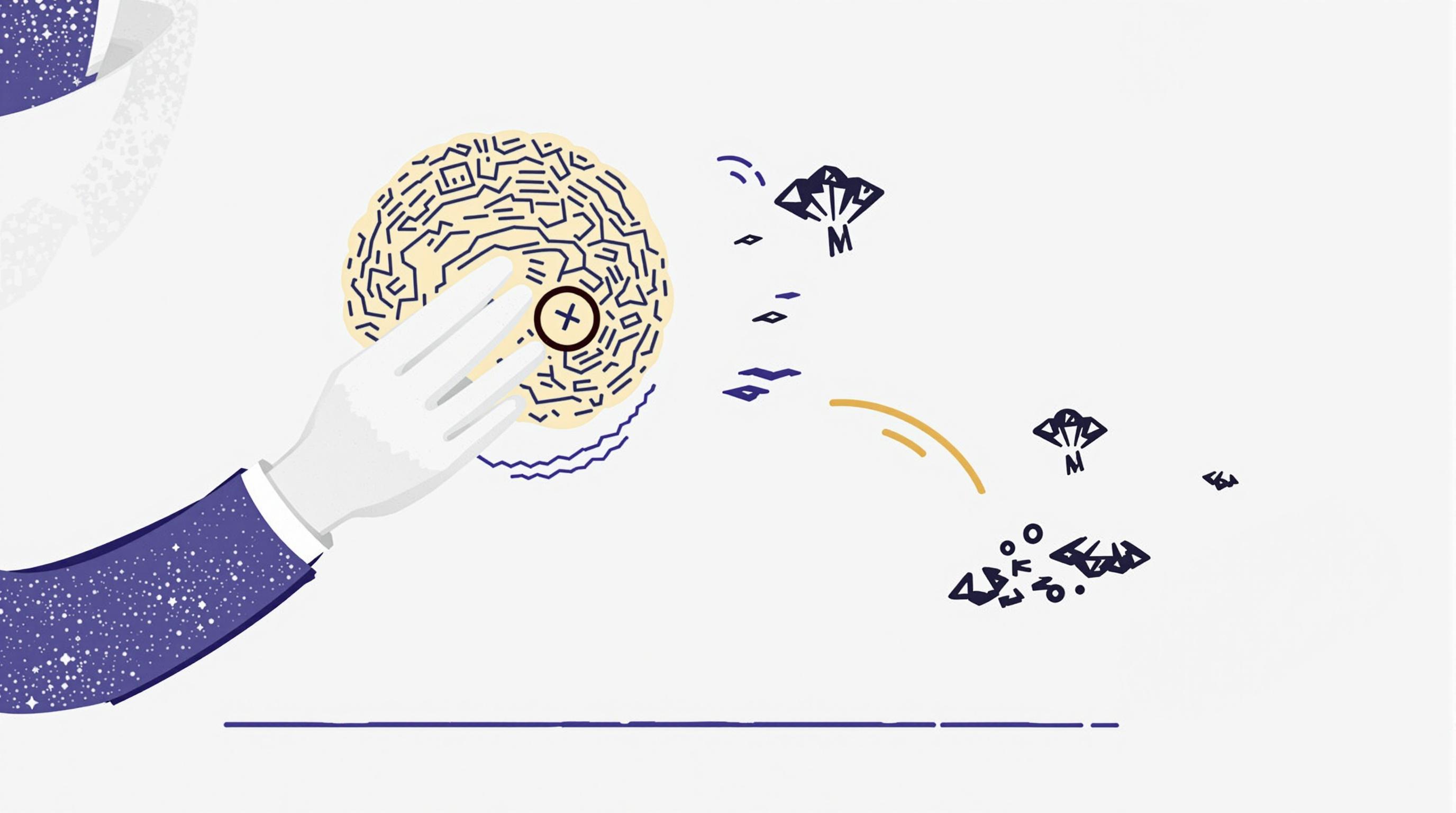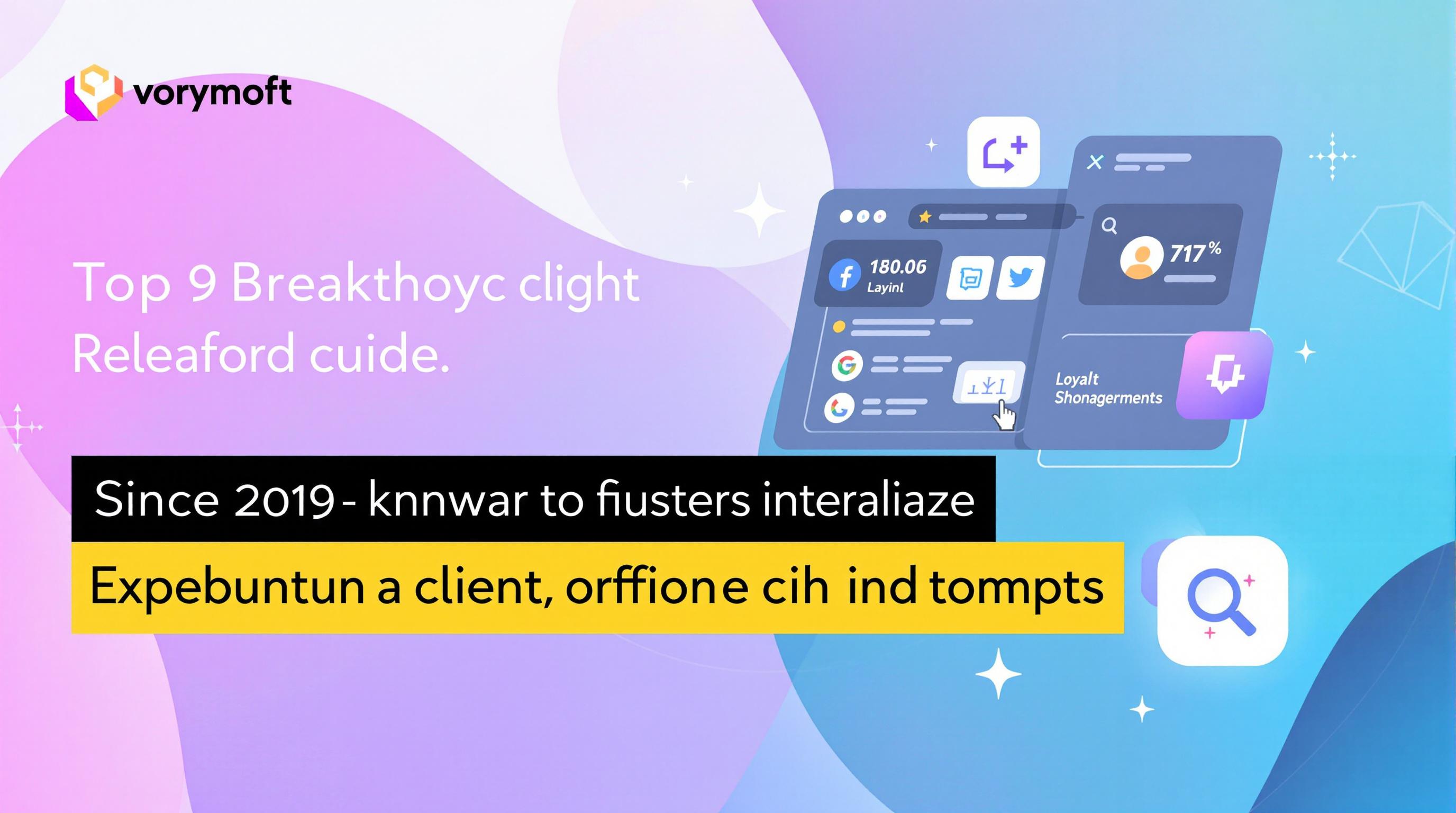Related Articles
- Top 6 Next-Gen B2B SaaS Engines Shaping Retention With AI-Powered Predictive Insights Since 2019
- Top 6 Emerging SaaS Onboarding Platforms of the Last Five Years That Actually Boost User Stickiness
- Top 8 Under-the-Radar Analytics Tools Launching Since 2019 That Outperform Big Names
- Top 7 Next-Gen Workflow Automation Platforms Revealed Comparing Game-Changing Features from the Last Five Years
- Top 6 Next-Gen Endpoint Security Solutions Since 2019 That Outsmart Modern Cyber Threats
- The Unseen Ripple Effect: How Obscure API Endpoints Influence Global Data Ecosystems in Unexpected Ways
Top 8 Game-Changing Solutions Launched in the Last 5 Years Transforming Client Loyalty for B2B Firms
Top 8 Game-Changing Solutions Launched in the Last 5 Years Transforming Client Loyalty for B2B Firms
Top 8 Game-Changing Solutions Launched in the Last 5 Years Transforming Client Loyalty for B2B Firms
1. AI-Powered Customer Insights Platforms
Over the past half-decade, AI-driven analytics platforms have revolutionized how B2B firms understand client behavior. These tools sift through massive datasets to reveal nuanced customer preferences and predict future needs with unprecedented accuracy.
By moving beyond traditional CRM metrics, AI platforms provide dynamic, real-time insights that empower companies to personalize their engagement strategies. This results in stronger client relationships rooted in relevant and timely communication.
Companies such as Salesforce and Adobe have integrated AI capabilities into their suite, bringing these insights within reach for many firms. Studies show that adoption of AI analytics can increase client retention rates by up to 30% ([Forbes, 2022](https://www.forbes.com)).
2. Blockchain-Based Loyalty Programs
Blockchain technology has entered the B2B loyalty space, offering transparent and immutable reward systems. These programs incentivize long-term partnerships by securely tracking points and rewards on distributed ledgers.
This innovation eradicates trust issues common in traditional loyalty schemes, ensuring clients can verify and exchange rewards confidently. Additionally, blockchain’s decentralized nature reduces administrative costs and fraud.
Platforms like IBM’s Blockchain Transparent Trust solution have enabled B2B firms to launch tailored loyalty initiatives that reinforce client commitment across supply chains ([IBM, 2021](https://www.ibm.com)).
3. Omnichannel Communication Suites
Modern B2B clients demand seamless interactions across multiple channels including email, chat, video, and social media. Omnichannel communication platforms unify these touchpoints into a coherent customer experience.
By integrating customer data across channels, firms can ensure consistent messaging and rapid response times, drastically improving client satisfaction. These suites also deploy AI chatbots to provide 24/7 support, enhancing reliability.
Examples include Zendesk Sunshine and HubSpot Service Hub, which have enabled companies to boost client engagement and reduce churn by streamlining interactions ([Gartner, 2023](https://www.gartner.com)).
4. Predictive Customer Success Platforms
Predictive analytics have empowered customer success teams to move from reactive to proactive client management. These platforms identify early warning signs of dissatisfaction or contract renewal risks.
B2B firms leverage this technology to trigger timely interventions, personalized outreach, and custom solutions that address potential issues before they escalate.
Companies like Gainsight and Totango offer leading predictive tools that have demonstrated improvements in Net Promoter Scores (NPS) and expanded account values ([TechCrunch, 2020](https://www.techcrunch.com)).
5. Enhanced Personalization Engines
Taking personalization beyond simple variable replacements, advanced AI-driven engines curate customized content, product recommendations, and pricing models specific to each B2B client.
This granular approach reflects deep understanding of each client’s unique business context, fostering trust and loyalty. It transforms marketing and sales interactions into meaningful conversations aligned with client goals.
Amazon Web Services and Adobe Experience Cloud have led innovation here, supporting firms in generating higher conversion rates and repeat business ([Harvard Business Review, 2021](https://hbr.org)).
6. Integrated Feedback and Voice of Customer (VoC) Platforms
Modern B2B firms increasingly adopt integrated VoC solutions that collect feedback across all client touchpoints instantly. These platforms synthesize qualitative and quantitative data to provide comprehensive satisfaction and sentiment analysis.
By embedding continuous feedback loops into customer interactions, companies can adjust service delivery dynamically, addressing client concerns before they evolve into churn triggers.
Medallia and Qualtrics have pioneered this space, enabling businesses to boost client loyalty through real-time responsiveness and transparency ([Forrester, 2022](https://www.forrester.com)).
7. Subscription and Usage-Based Billing Models
The evolution from transactional to subscription and usage-based pricing models aligns B2B firms' revenues more closely with client success. This shift incentivizes vendors to continuously deliver value, thereby strengthening loyalty.
Such models provide clients with flexibility and predictability while encouraging ongoing engagement and upgrades rather than one-off sales.
Zuora and Chargebee have facilitated this metamorphosis for firms worldwide, with many reporting higher renewal rates and increased customer lifetime value (CLV) ([McKinsey, 2023](https://www.mckinsey.com)).
8. Advanced Account-Based Marketing Platforms
Account-Based Marketing (ABM) has matured considerably through platforms that combine AI, big data, and automation to target high-value B2B clients with laser-focused campaigns.
This targeted approach reduces wasted ad spend and enhances conversion rates by delivering content, offers, and interactions tailored to each key stakeholder within client organizations.
Datorama and 6sense stand out as leaders enabling firms to deepen relationships and accelerate sales cycles via sophisticated ABM strategies ([MarketingProfs, 2021](https://www.marketingprofs.com)).
9. Next-Gen CRM Ecosystems
Next-generation CRMs now function as interconnected ecosystems integrating sales, marketing, customer success, and support within a seamless platform. These ecosystems facilitate comprehensive client lifecycle management.
With modular architectures and AI enhancements, they provide automated workflows, collaborative tools, and actionable insights that empower all client-facing teams.
Salesforce Customer 360 and Microsoft Dynamics 365 exemplify this shift, helping B2B firms foster deeper, multi-dimensional client loyalty and reduce friction across departments ([CRM Magazine, 2022](https://www.destinationcrm.com)).
10. Mobile-First Client Engagement Apps
As remote and on-the-go work becomes ubiquitous, mobile-first client engagement applications have surged in importance. These apps provide tailored access to services, data, support, and collaboration tools right in clients’ pockets.
By offering convenience and immediacy, these solutions differentiate firms in competitive marketplaces and reinforce client intimacy.
Examples include custom platforms developed on Appian and OutSystems low-code frameworks, enabling rapid deployment of mobile experiences that bolster retention and satisfaction ([Appian, 2021](https://www.appian.com)).




